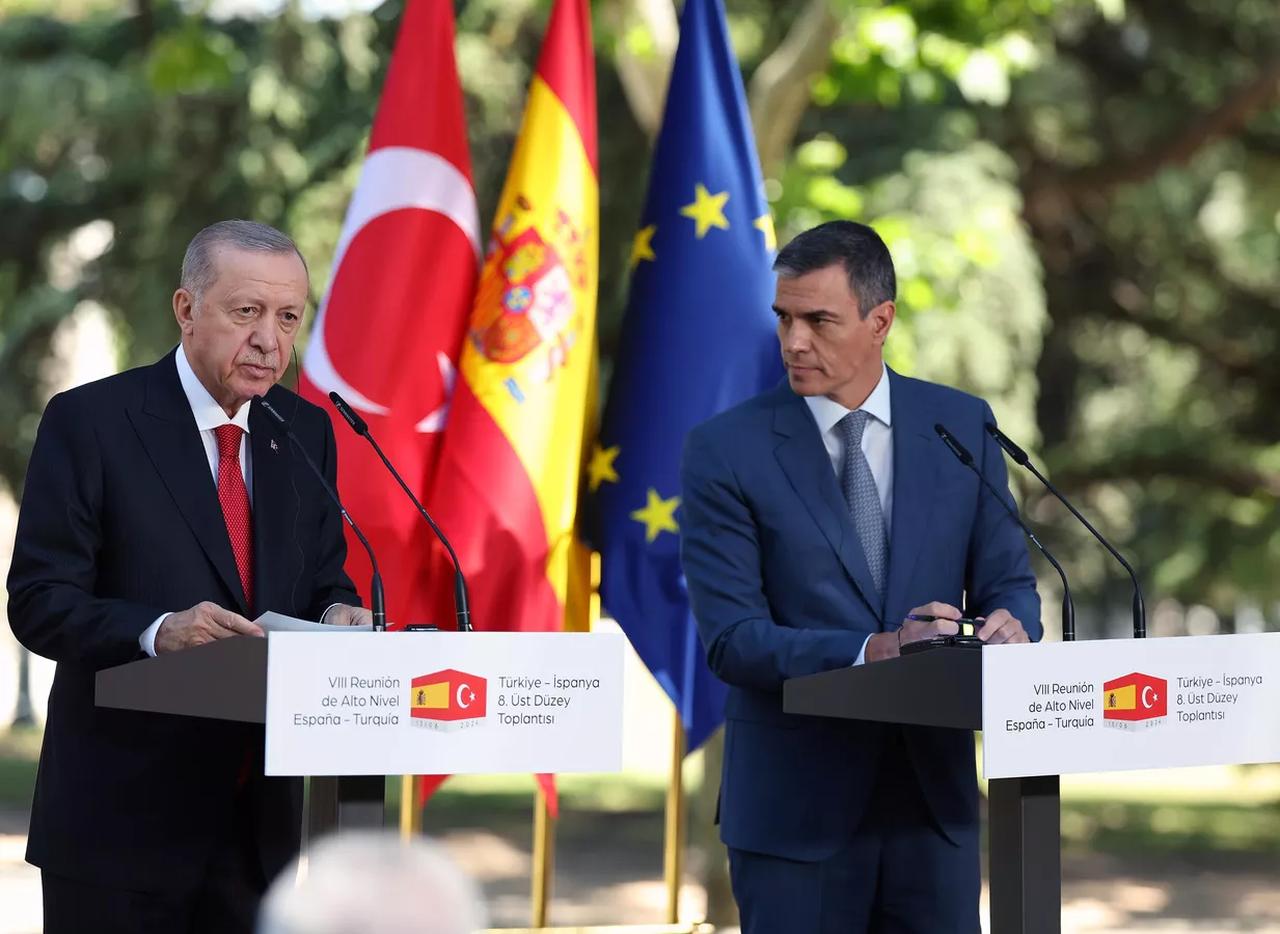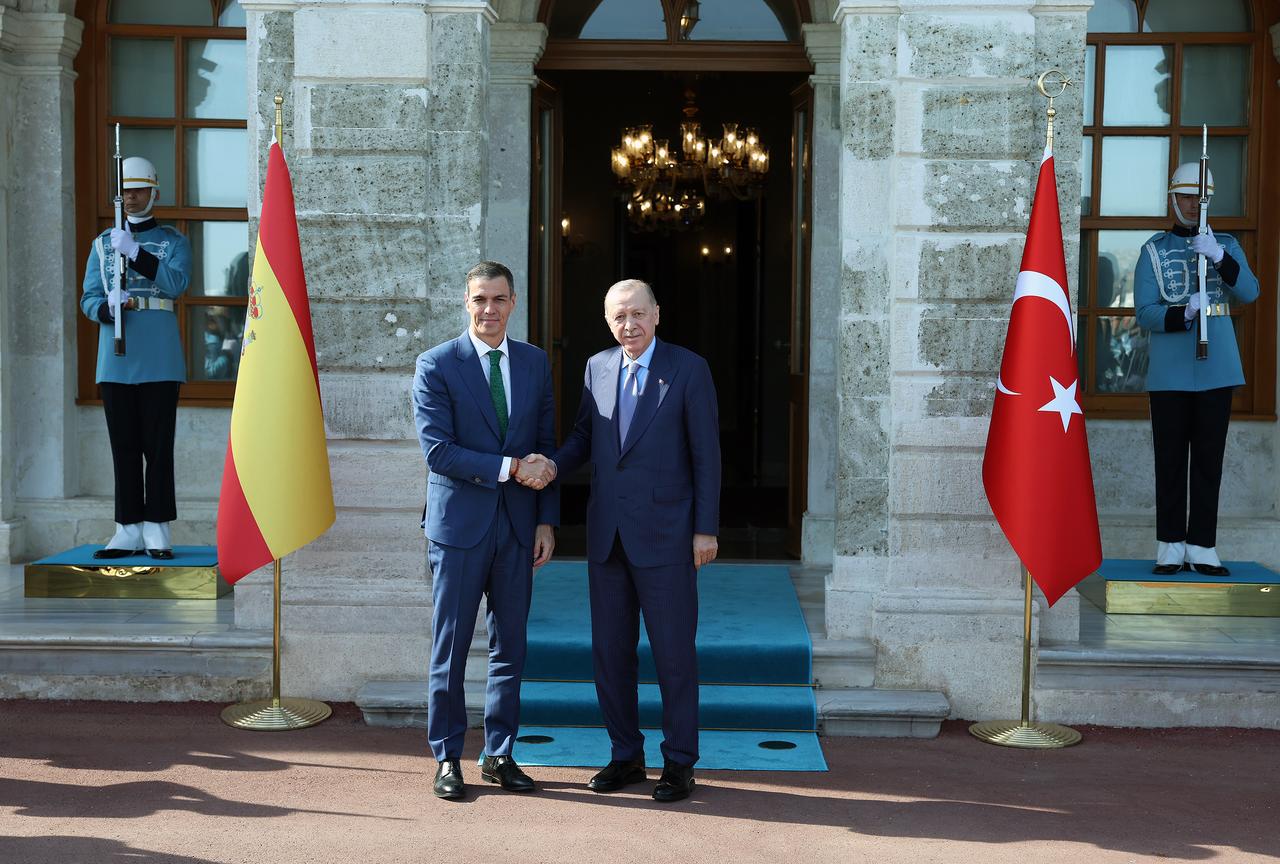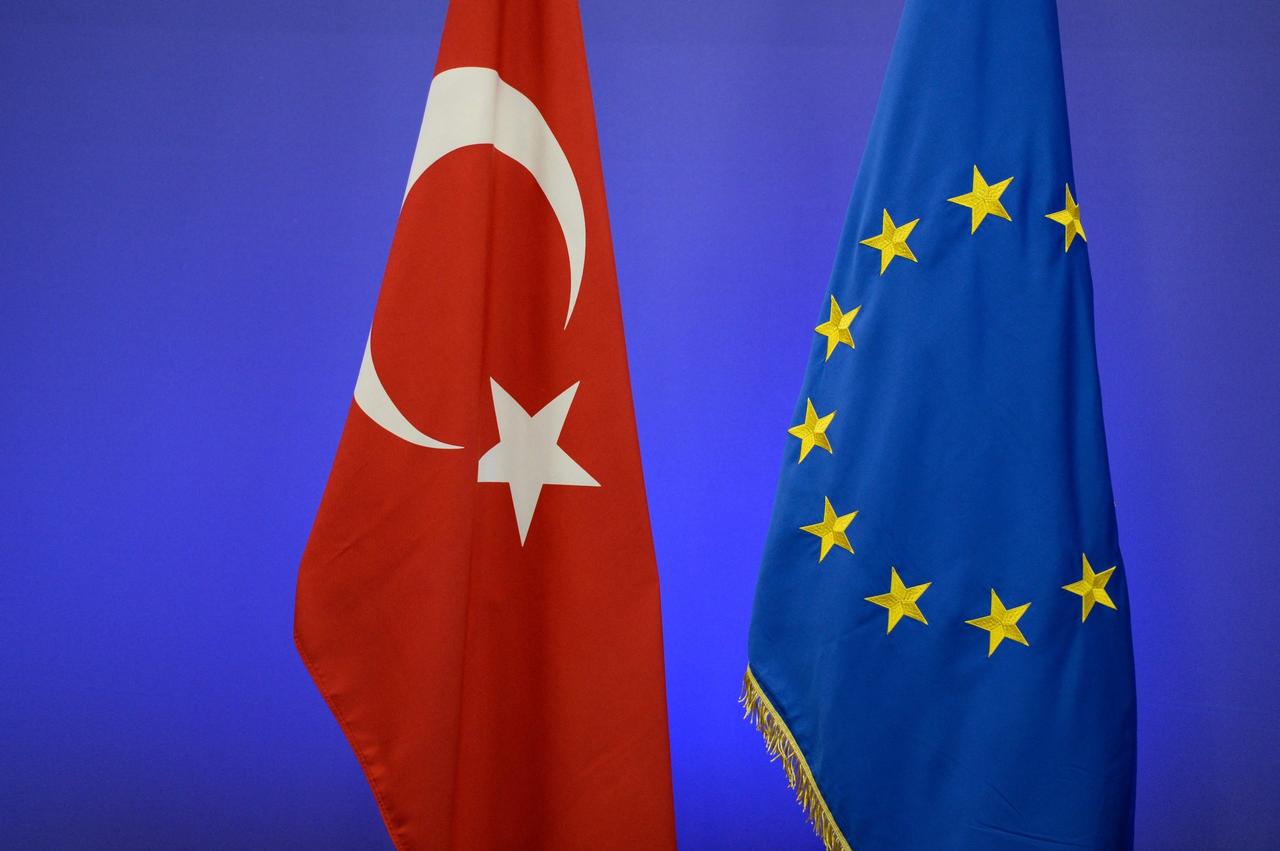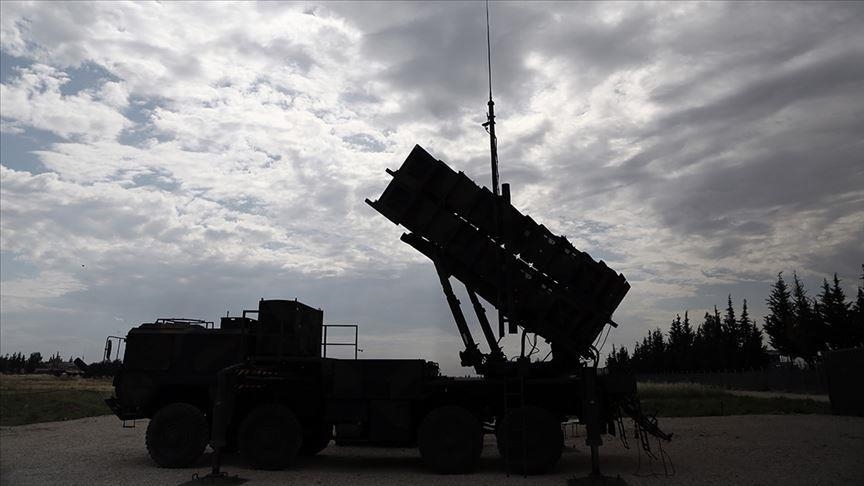
A high-level diplomatic meeting between President Recep Tayyip Erdogan and Spanish Prime Minister Pedro Sanchez in Istanbul on Friday has highlighted the remarkably strong bilateral relationship between the two Mediterranean nations.
The talks covered critical regional and international issues, including humanitarian aid to Gaza, Türkiye's European Union membership aspirations, and ongoing peace efforts between Ukraine and Russia.
This depth of engagement is no coincidence. Türkiye and Spain enjoy a notably stable and cooperative political relationship for several reasons, like the similarities in foreign policy understandings and societal ties between.
The absence of geopolitical competition between Türkiye and Spain stands in stark contrast to the tensions Ankara has experienced with other European powers, particularly France, in contested theaters like the Eastern Mediterranean, Libya, or Syria; there are no comparable areas of friction between Ankara and Madrid.
This lack of conflict has paved a remarkably smooth diplomatic pathway—one that enables consistent, constructive engagement and allows both countries to focus on shared interests rather than defensive posturing.

Türkiye views Spain as a principled actor on the global stage, particularly due to its commitment to international law and multilateral institutions such as NATO.
Spain's foreign policy approach, grounded in legal frameworks and diplomatic solutions, positions it as a distinctive voice in international affairs, particularly in an era of increasing unilateralism marked by strategic opportunism.
Especially since the Trump era, Spain’s consistent emphasis on the rule of law and diplomatic solutions has resonated with Ankara, not just in issues like Gaza but also in long-standing Mediterranean disputes such as the Cyprus issue.
Spain’s refusal to adjust its values for political convenience enhances its credibility in the eyes of Turkish policymakers and citizens alike.
This credibility is further reinforced by the mutual public perception between the two societies—a perception that remains largely positive and unburdened by historical baggage. Despite being situated at opposite ends of the Mediterranean, both Spain and Turkey share cultural traits characteristic of the region.
Increased tourism and easier travel access have also deepened interpersonal connections, helping each nation become more familiar and relatable to the other.

Spain stands out within the European Union as one of the few member states that openly supports Türkiye’s EU accession. Unlike countries such as Austria, France, or Greece, Spain, under the leadership of the PSOE party, has historically backed Ankara’s European integration.
Notably, Spain lobbied for the implementation of the EU-Türkiye Customs Union back in 1995 and continues to advocate for Türkiye's inclusion in the European project.
This supportive stance was recently reaffirmed when Prime Minister Pedro Sanchez stated that Spain wants Türkiye to be part of the EU.
Moreover, both Türkiye and Spain face long-standing challenges with separatist terrorist organizations—Türkiye with the PKK, and Spain with ETA (Basque Homeland and Freedom).
This shared security concern fosters a mutual understanding in counterterrorism efforts, allowing for close cooperation in this sensitive domain.
Additionally, the relatively low presence of Gulenist Terror Group (FETO) militants or PKK terrorist figures in Spain reduces the risk of diplomatic tensions related to domestic security threats.

Memorable acts of solidarity between the two countries have also cemented goodwill in the public memory. During the 2015 period when Türkiye faced regional isolation, Spain deployed Patriot missile systems to defend Turkish territory—an act still remembered with gratitude by the Turkish public.
Similarly, during the early days of the COVID-19 pandemic, when Spain was severely affected and struggling to obtain assistance, Türkiye sent medical supplies without expecting anything in return, even as other nations prioritized their domestic needs.
Contrary to the “clash of civilizations” rhetoric that gained traction in the post-9/11 world, Türkiye and Spain jointly championed the “Alliance of Civilizations” initiative in 2005, under the auspices of the United Nations.
This project sought to promote cross-cultural dialogue and understanding at a time of rising global polarization. The initiative remains a symbolic and practical testament to the shared diplomatic vision of both countries.
Beyond diplomacy, the Türkiye-Spain relationship is underpinned by strong economic links. Excluding EU member states, Türkiye is currently Spain’s third-largest trading partner after the United States and Mexico.
This economic dimension not only reinforces bilateral cooperation but also ensures that both nations have a vested interest in maintaining and expanding their mutually beneficial relationship.